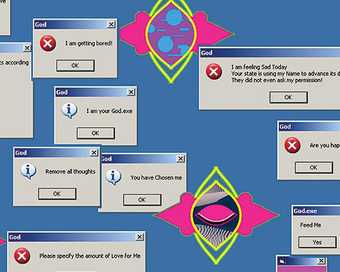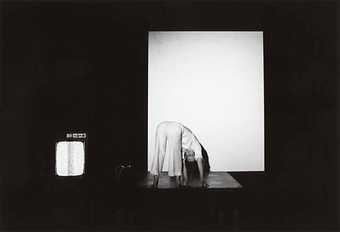Join us for a conversation about the changing relationship between internet art and the museum. Drawing on her experience as a pioneering curator of digital art, most recently at the Whitney Museum of American Art in New York, Christiane Paul will reflect on how artists have used the internet from its beginnings in the 1990s to now. The conversation that follows will feature contributions from Gary Stewart and Nataša Petrešin-Bachelez, and be chaired by Anne Barlow.
A day-long series of talks and activities, Lives of Net Art: A Public Workshop, follows on Thursday 4 April.
Christiane Paul is Chief Curator / Director of the Sheila C. Johnson Design Center and Professor in the School of Media Studies at The New School, and Adjunct Curator of Digital Art at the Whitney Museum of American Art. She is the recipient of the Thoma Foundation's 2016 Arts Writing Award in Digital Art, and her recent books are A Companion to Digital Art (Blackwell-Wiley, May 2016) and DigitalArt (Thames and Hudson, 3rd revised edition, 2015). At the Whitney Museum she curated exhibitions including Programmed: Rules, Codes, and Choreographies in Art 1965 - 2018 (2018), Cory Arcangel: Pro Tools (2011) and Profiling (2007), and is responsible for artport, the museum’s portal to Internet art. Other curatorial work includes Little Sister (is watching you, too) (Pratt Manhattan Gallery, NYC, 2015) and What Lies Beneath (Borusan Contemporary, Istanbul, 2015).
Anne Barlow is Director of Tate St Ives. Previously, she was Artistic Director at Tate St Ives (2017–18), Director of Art in General, New York (2007–16), Curator of Education and Media Programs at the New Museum, New York (1999–2006), and Curator of Contemporary Art and Design at Glasgow Museums, Scotland (1994–9). She has initiated award-winning programmes including Museum as Hub (New Museum) and the What Now? symposia (Art in General), and curated exhibitions with artists including Dineo Seshee Bopape, Donna Huanca, Adelita Husni-Bey, Marwa Arsanios, Basim Magdy, Jill Magid, Shezad Dawood and Surasi Kusolwong.
Working with electronic media as an artist, producer and curator over the last twenty five years, Gary Stewart has been involved in pioneering initiatives and projects that explore explore social and political issues through interrogating the relationship between culture, technology and creativity, particularly those models of practice that are investigating the capacity of digital arts to create active citizenship. Between 1995-2010 he was Head of Multimedia at Iniva, the Institute of International Visual Arts, London where he curated Iniva’s digital programme including installations, exhibitions, public and online projects. With artist Trevor Mathison he is a founder member of London based interdisciplinary artist, research and performance group Dubmorphology and as Bantu performs with Asian Dub Foundation bassist Aniruddha Das. Recent projects include Sonic Redux (2018) at Royal Academy, a video installation for FLUP (2018) A Festa Literária Das Periferias Rio de Janeiro, and a sound installation at Uniqlo Tate Lates (2018) Tate Modern.
Nataša Petrešin-Bachelez is an independent curator, editor and writer. Currently curating Contour Biennale 9: Coltan as Cotton in Mechelen, Belgium, among her previous projects and exhibitions are Show me the archive and I will tell you who is in power at Kiosk (2017, with Wim Waelput, Ghent) and Let’s Talk about the Weather at the Sursock Museum (at the Sursock Museum, Beirut and Times Museum, Guangzhou (2016 and 2018, with Nora Razian and Ashkan Sepahvand)). She was co-director of Les Laboratoires d’Aubervilliers (2010–12) and co-founder of the network Cluster. She was chief editor of L’Internationale Online (2014-2017), and chief editor of the Manifesta Journal (2012–14).
About Reshaping the Collectible
Lives of Net Art has been programmed as part of Reshaping the Collectible: When Artworks Live in the Museum, a Tate Collection Care Research project focused on the challenges posed to museum practices by different art forms. This event is devised in collaboration with Tate’s Digital Learning and Time-based Media Conservation teams and made possible with support provided by a grant from The Andrew W. Mellon Foundation.


